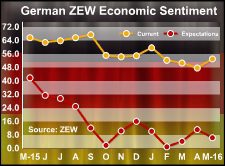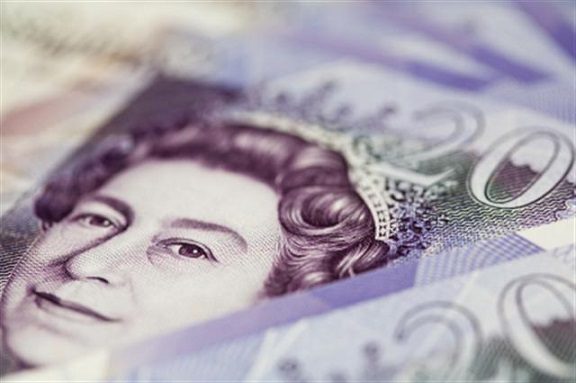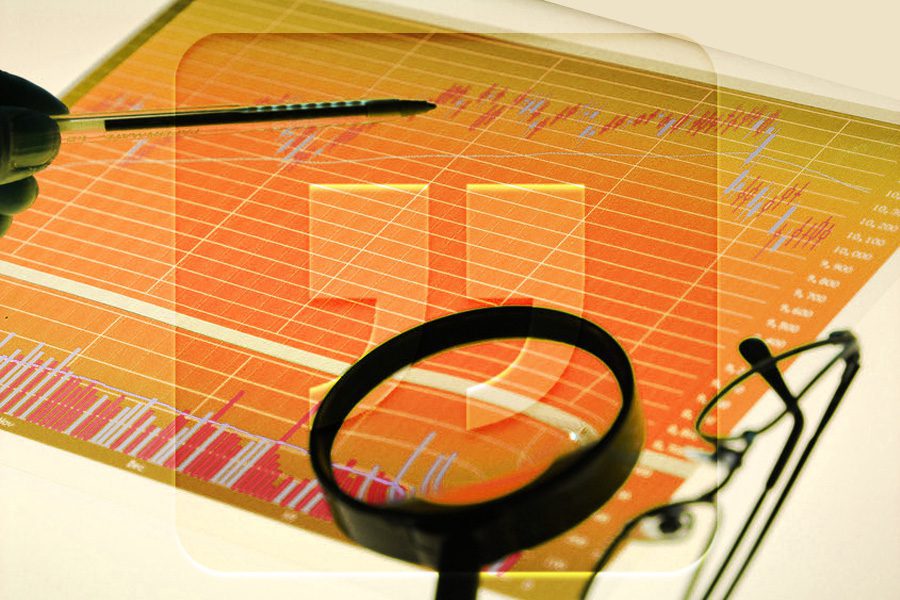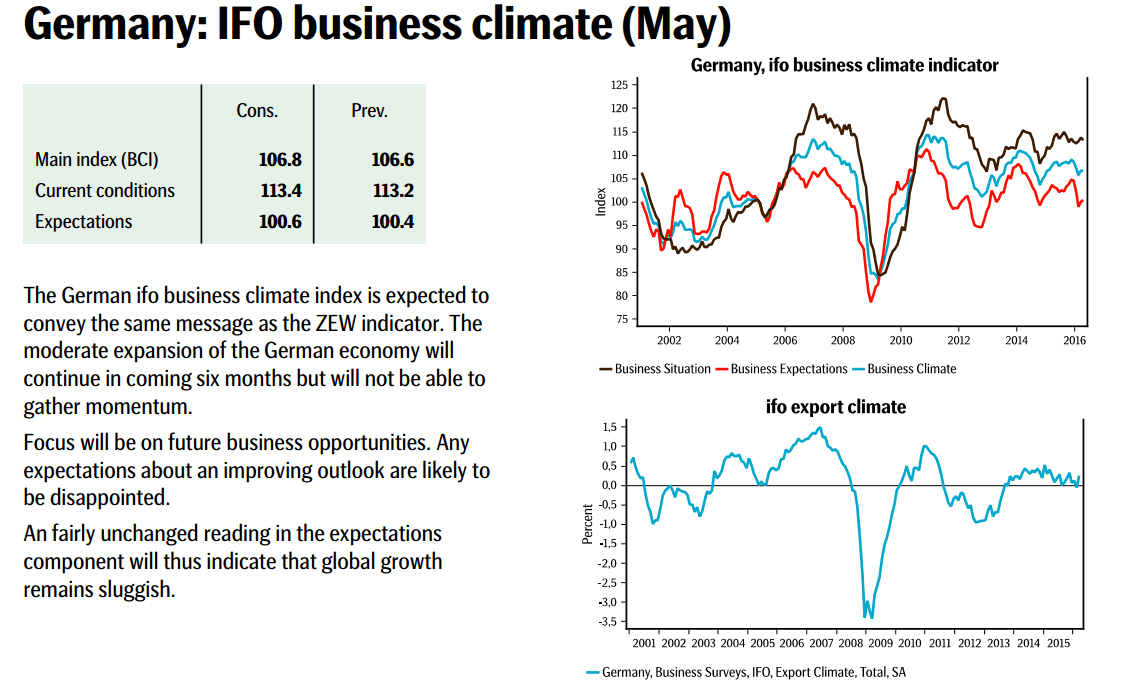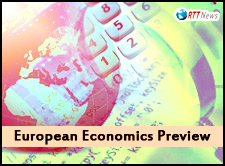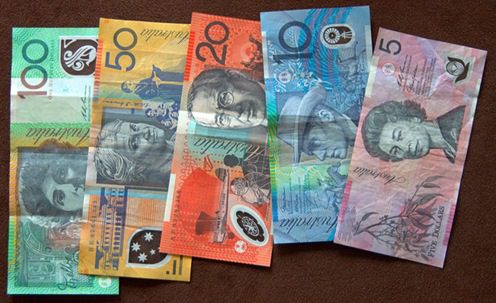German economic sentiment unexpectedly weakened in May as financial experts found it unlikely that the biggest euro area economy would repeat its stellar first quarter performance as the uncertainty linked to the "Brexit" clouded outlook.
The ZEW Indicator of Economic Sentiment for Germany dropped to 6.4 from 11.2 in April, survey results from the Centre for European Economic Research or ZEW showed Tuesday. Economists had forecast a score of 12. The index declined for the first time since February.
"The strong growth of the German economy in the first quarter of 2016 appears to have surprised the financial market experts," Achim Wambach, president of the Mannheim-based think tank, said.
"However, they seem not to expect the economic situation to improve at the same pace going forward."
Uncertainties regarding developments such as a possible "Brexit" currently inhibit a more optimistic outlook, Wambach added.
Meanwhile, the current situation index of the survey rose to 53.1 from 47.7 in the previous month. Economists had forecast a reading of 49.
Earlier today, Destatis published the second release of the gross domestic product data for the March quarter that revealed that growth was driven by strong investment and domestic demand.
Gross domestic product climbed 0.7 percent sequentially, faster than the 0.3 percent rise seen in the fourth quarter.
Last week, Bundesbank said that Germany's robust economic growth is set to continue in the second quarter, but loose some momentum, given the possibility of further decline in oil prices damping purchasing power and the weaker outlook for exports.
Capital Economics economist Jennifer McKeown said the decline in the German ZEW was in line with the firm's view that growth will slow as the year goes on.
"We think much of the pick-up in consumer spending has related to the drop in inflation, which will be reversed in the months ahead," the economist said.
"And subdued global demand will continue to limit export growth, particularly as last year's sharp euro depreciation is unlikely to be repeated."
The economic sentiment index for the euro area also declined in May. The sentiment indicator for Eurozone fell to 16.8 from 21.5 in April. The current situation index added 2.9 points to -9.2.
"We doubt that the German economy will be strong enough to ensure a meaningful recovery of growth or inflation in the euro-zone as a whole," Capital Economics' McKeown said.
by RTT Staff Writer
For comments and feedback: editorial@rttnews.com
Economic News
What parts of the world are seeing the best (and worst) economic performances lately? Click here to check out our Econ Scorecard and find out! See up-to-the-moment rankings for the best and worst performers in GDP, unemployment rate, inflation and much more.
